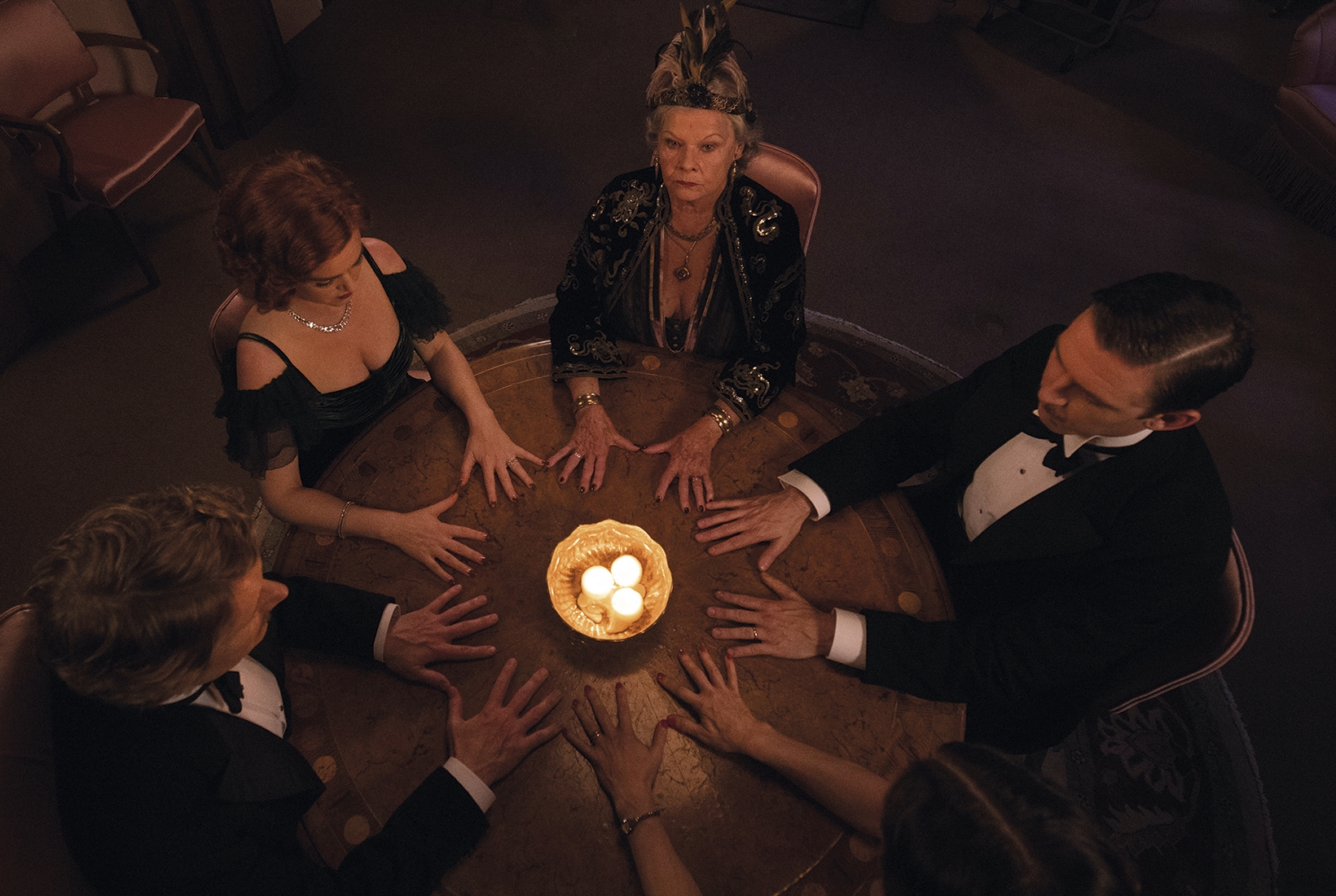The comedy Blithe Spirit was written by Noël Coward in 1941. It is, essentially, about a séance going wrong and a deceased first wife coming back to haunt her husband and his second wife, causing mayhem. Better if she’d been left to rest in peace, and, after seeing this film adaption, you may well wish the play had been left to rest in peace too. Don’t dig it up! Leave well alone! I would even add that if Dame Judi Dench can’t save an adaptation — and I was previously of the mind that Judi Dench could save anything — then you know you are in real, real trouble.
The play was famously filmed by David Lean in 1945, starring Rex Harrison as novelist Charles Condomine and Margaret Rutherford as Madame Arcati. My initial hope was that this version, directed by Edward Hall, formerly artistic director of Hampstead Theatre, who has also worked on TV shows like Downton and The Durrells, would bring something fresh and relevant to Coward, just as Sarah Phelps has done with Agatha Christie for the BBC, but no such luck.
If Dame Judi Dench can’t save an adaptation, then you know you are in real trouble
The film stars Dan Stevens as Condomine, and he’s chewing the scenery, literally, from the word go. He has writer’s block and in frustration and desperation whips the paper from his typewriter, shoves it in his mouth, and chomps down on it. It’s that sort of film. It’s also the sort of film where two characters look away from each other, look back at each other, and scream, like they always do in Scooby-Doo.
Anyway, Charles lives in a magnificent art deco mansion with his second wife, Ruth (Isla Fisher), whose father is a big-shot film producer. Charles is meant to be adapting one of his own novels into a screenplay for him, but is stuck. And Ruth keeps getting at Charles about that, as she’s horrible and mean and charmless, but then everyone in this version is.
Ruth’s father was not in Coward’s play or Lean’s film. The deal there was that Charles, a crime writer, hears that Madame Arcati, a spiritualist, has moved into the village and decides to ask her to hold a séance as he is looking for inspiration for his next project. However, in this version Charles books tickets to see Madame Arcati (Dench), who is performing at a West End theatre, as he’s also searching for inspiration. But as he has already written the novel that he’s meant to be turning into a script, how does that work? It doesn’t, is the plain answer. But let’s move on. After the senseless theatre preamble, Madame Arcati is invited to hold that séance, summoning up Charles’s first wife, Elvira (Leslie Mann), who is just as horrible as everyone else. Basically, what you have here is slapstick with horrible people being horrible to each other and shouting abuse on an interminable loop while performing as if they’re in pantomime. Or Scooby-Doo.
As for Dench’s Arcati, she is not an unfailing joy, like Rutherford’s. She doesn’t cycle heartily or speak like an overgrown Victorian schoolgirl and she isn’t comically fabulous. Instead, she just seems sad and depressed and there’s nothing Dench can do about it, except be grateful that her character is mostly sidelined. This is to make way for all the extra characters who are introduced, and all the subplots, which makes you wonder: what is the point? Why adapt a play and eject most of it? One of the new subplots involves Charles’s inability to perform in the bedroom. ‘My Big Ben has stopped chiming. Mr Peasbody has stage fright…’ I would like to say the funny lines just don’t work in print but they don’t work on screen either. As for the different ending, it’s quite Thelma & Louise, but not in a good way.
Let’s not be too down, however. There are positives, like the costumes, which are gorgeous, and the mansion — it’s Joldwynds in Surrey, I think — which is gorgeous, and… nope. That really is about it.







Comments